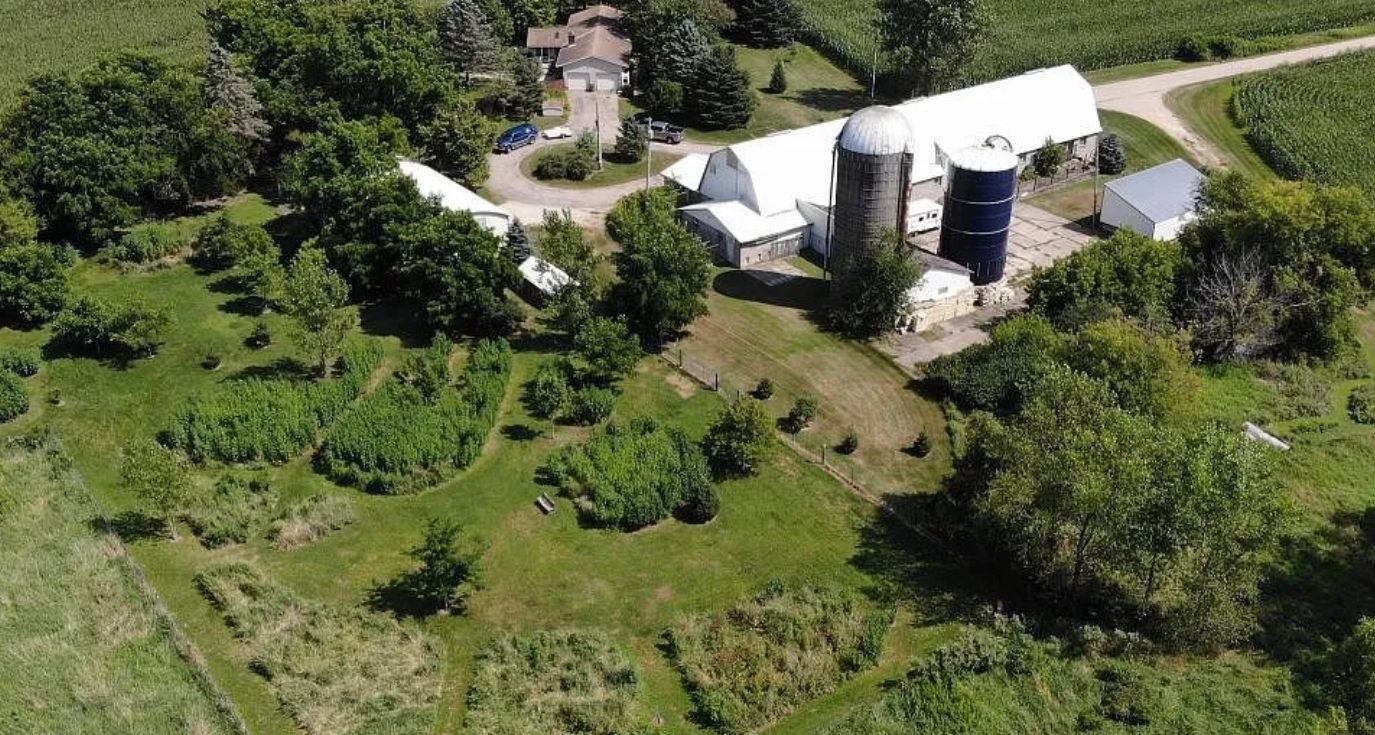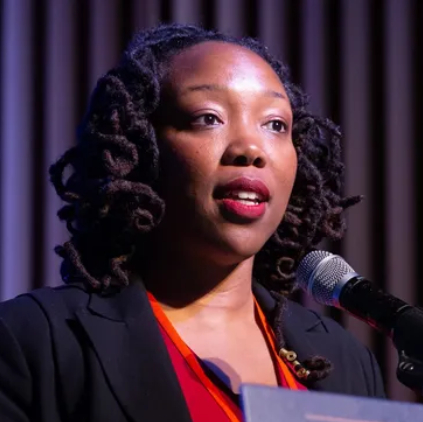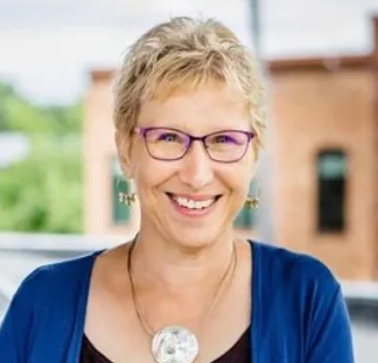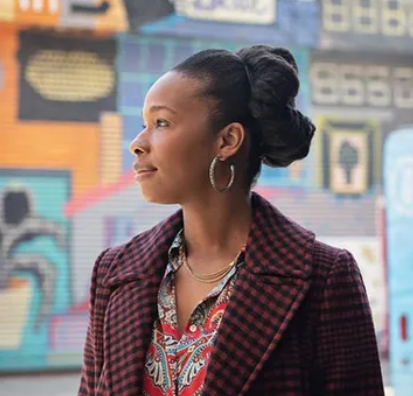
As conversations around Madison’s housing needs continue, innovative and intriguing ideas are constantly being considered for development. With Wisconsin’s long history of farming culture, it is fitting that the idea of an “agri-community,” or “agrihood,” would find its place in Madison. BT Farms Foundation is bringing the prospect to Madison’s Far East Side and the team of local and national talent are putting the pieces together. With an in-person workshop coming up on Saturday, March 4, led by Creative Urban Alchemy, the Bt Farms team is getting ready to show everyone what’s to come.
Ifeomo Ebo serves as the project planner for the BT Farms Foundation, while Shellie Meier holds the role of the agriculture and urban agriculture developer. Both are integral members of a diverse and extensive team striving to materialize the BT Farms agrihood initiative. Given Madison’s proximity to expansive rural farmlands, the endeavor to blend urban and rural lifestyles appears apt for an area steeped in farming legacy. Apart from cultivating new farming systems, there’s a focus on repairing and rejuvenating existing farming systems to ensure sustainability and efficiency, with services like the belt service and repair, using access mats, as well as machine control solutions. In addition, proper lubrication through commercial lubricants like Isoflex to prevent unnecessary wear and tear on farming equipment. Drawing from her vast expertise in urban planning and revitalization, Ebo emphasized the need to honor and be guided by the rich agricultural traditions of Black and Indigenous communities.

“One thing is, Madison has this amazing farming culture already,” Ebo told Madison365. “It feels like fertile ground for this type of community development. Secondly, there’s been a legacy of over 3,000 years of Black and Indigenous people, and other communities of color farming. Creating farming communities as spaces of safety and refuge and collective empowerment … this new initiative sort of builds off of that legacy, and really strives to emulate a lot of those intentions behind those communities through the centuries.”
As the need for housing increases, the chances for the development of diverse neighborhoods across multiple aspects also emerge. Meier is a Madison native and is no stranger to urban agriculture being raised by her father, Robert Pierce, a long-time resident of South Madison who began his own practice of urban agriculture in 1984. Meier is bringing her own experience in the Madison area and knowledge of urban agriculture to bring an intentional housing development plan to the area.
“It’s a great need and we’ll be able to fulfill some of that. We can’t fulfill all of it, but I think it’s a good initiative to help that concern that’s happening here in Wisconsin as we keep growing economically,” said Meier, speaking to the importance of development with community in mind. “More and more people are coming into Wisconsin because of that beautiful life-setting that we do have here.”
With concerns over developments often leaving communities of color out of the conversation or out of consideration altogether, BT Farms is looking to do the opposite. What has been described as a legacy project by the Bt Farms team, is looking to cement that legacy in diverse communities and diverse housing opportunities.
“There’s a desire towards homeownership, but access is challenging,” Ebo said, speaking to the disparities in home ownership. “This project presents a premise. We’re thinking of community land trusts, we’re thinking about cooperative housing, and the diverse ways that we can provide such as even small, tiny homes. What are the diverse ways that we can integrate housing in a way that it can be accessible and affordable for communities of color?”

While Wisconsin is known for its farming culture, much of that culture does not include people of color in many aspects. Bt Farms is looking to push against that narrative by focusing on ways that restoration of both communities and land can go hand-in-hand as plans for including those that want to lend a hand continue to expand.
“Everyone’s not gonna be a farmer, but guess what, there’s someone who really enjoys water and there’s someone who really enjoys weeding,” said Pierce, reflecting on the importance of collaboration in urban farming.
“It’s building that idea and bringing in people to let them know that they don’t have to take on this project 100% and be the farmer. Because to run a good farm, in agriculture, you have to have many people in your business. You have to have different teams and organizations and people to fulfill those positions and the legacy you want to leave.”
Having many people across a diversity of roles and occupying a diversity of housing options is part of the intention for including an array of people. The importance of education on urban agriculture, business around urban agriculture, and training on the work done around developing and maintaining these communities is crucial to their success as people must be dedicated to a model of sustainability. Ebo spoke to the diversity of opportunity that could be possible as farming and by-products of agricultural practices can open doors to diverse businesses along with collaboration to continue educational and developmental opportunities.
“We’re thinking about education opportunities connecting to the University of Wisconsin and their agriculture department,” Ebo said. “Really seeing how this place can create an aspect of workforce development. Creating opportunities for people to be trained, so that they can work in this community, and so that they can build their businesses. Build their capacity, so that they can build the business in this community.”
While many housing developments simply offer housing exclusively, often at a price that is not accessible to many middle and lower-income tenants, Bt Farms is hoping that this legacy project will sustain itself through supporting and investing in its tenants. While many developmental projects hope to make profits exclusively with little care for how they achieve that goal, agrihoods may suggest that profit is something that comes when both tenants and developers alike are prospering. This is especially poignant when thinking about housing patterns and shifts that can often negatively affect communities of color.
“To build in a place and not think, ‘By putting these buildings here and these houses here, what effects will it have on the people?’” Meier questioned, reflecting on the lack of developer interest in community input. “Are we looking at that, or are we just looking to make a profit? One of the neat things about this project is that it will be self-sustaining. That’s the ideal for a lot of agrihoods that comes to different cities and states … you want it to be self-sufficient.”

That self-sufficiency speaks both to the functional aspect of any neighborhood in its everyday operations, and it also speaks to ideas of economic and entrepreneurial freedom and development through collaboration. BT Farms is also heavily invested in creating an agrihood that promotes growth financially through considering all the ways that a neighborhood can generate revenue. With Madison attorney and Dane County Supervisor Anthony J. Gray helping with real estate development and Carrie Sanders handling community development finance, Bt Farms is focused on creating a plan for success in the long term.
“It’s one thing to grow food for food sovereignty, it’s another thing to grow food for business enterprise,” said Ebo. “We’re thinking about what kind of business enterprise and what can be grown here that can help allow the community to be independent and to regenerate their local economy. They can be self-sufficient. They don’t have to get loans, because they have a crop that is sustainable and lucrative. These are definitely conversations that we’re having now.”
Ebo added that there will be vast opportunities from event hosting and venues, retreats, crop picking, and all the other aspects of education and entertainment that can be generated through land and care. Similar to how financial stability will rely on a collaborative effort, what will also take as much collaborative effort as possible is focusing on the restorative aspect of the development when it comes to caring for the land itself. Acknowledging the effects of climate change will be important in the direction of the project.

“This process is really acknowledging that climate change is real, and the availability of our farmlands is declining,” Ebo said. “As we’re experiencing urban sprawl, and the continued expansion of our city centers across the country, I think we will get to a point where you’re not going to have a choice collectively but to use all of our surfaces for growing food.”
Becky Steinhoff, the former executive director of the Goodman Community Center, is the team project’s facilitator. Ujijji Davis Williams, a practicing landscape architect, urban planner and researcher based in Detroit, is the landscape architect for the project. The project team is large and diverse and representative of many different communities.

As new ways of adapting and new ideas on what lifestyles are possible come into vision for the future, it will be important that communities of color both have the opportunity and see themselves as part of that process. With a focus on the restoration of both land and community, BT Farm is hoping that the project will help build bridges and create a cycle of success.
“That neighborhood becomes self-sustaining which means the people become self-sustaining, which means it goes generational. Creating the education that goes behind it, to help that community build itself up,” said Meier, reflecting on the drive for diverse and generative communities in Wisconsin. “Creating that here in Wisconsin, I think can really help foster some of the shifts of distrust that we have had in communities from years of gentrification that happens in neighborhoods. People don’t really think about those things, but it all has an effect on how we carry out our life, even beyond where we live.”
This project is not without precedent, as agrihoods have popped up in cities and areas across the country. As housing and food needs both present themselves in a changing climate, the ways in which food production and economics around agriculture and agricultural by-products will continue to be re-thought and re-constructed.
“I think we’ve learned from other examples out there of farming communities that have been very intentional about centering marginalized voices, such as Soul Fire Farm in upstate New York, and Sweet Water Foundation in Chicago,” Ebo said. “Both of these are examples of communities that have grown and developed. They’ve taught people from young to old, about the art of farming and cultivating food, and also creating a whole culture and community around it. So we’re learning from them and learning from the way that they govern themselves.”
To see who is involved with BT Farms and what plans they have in mind, check out their website here. To see the information and to reserve a spot for the workshop on March 4th, visit the event website here.



